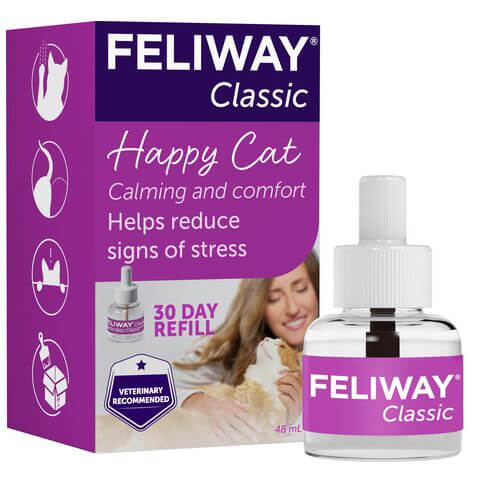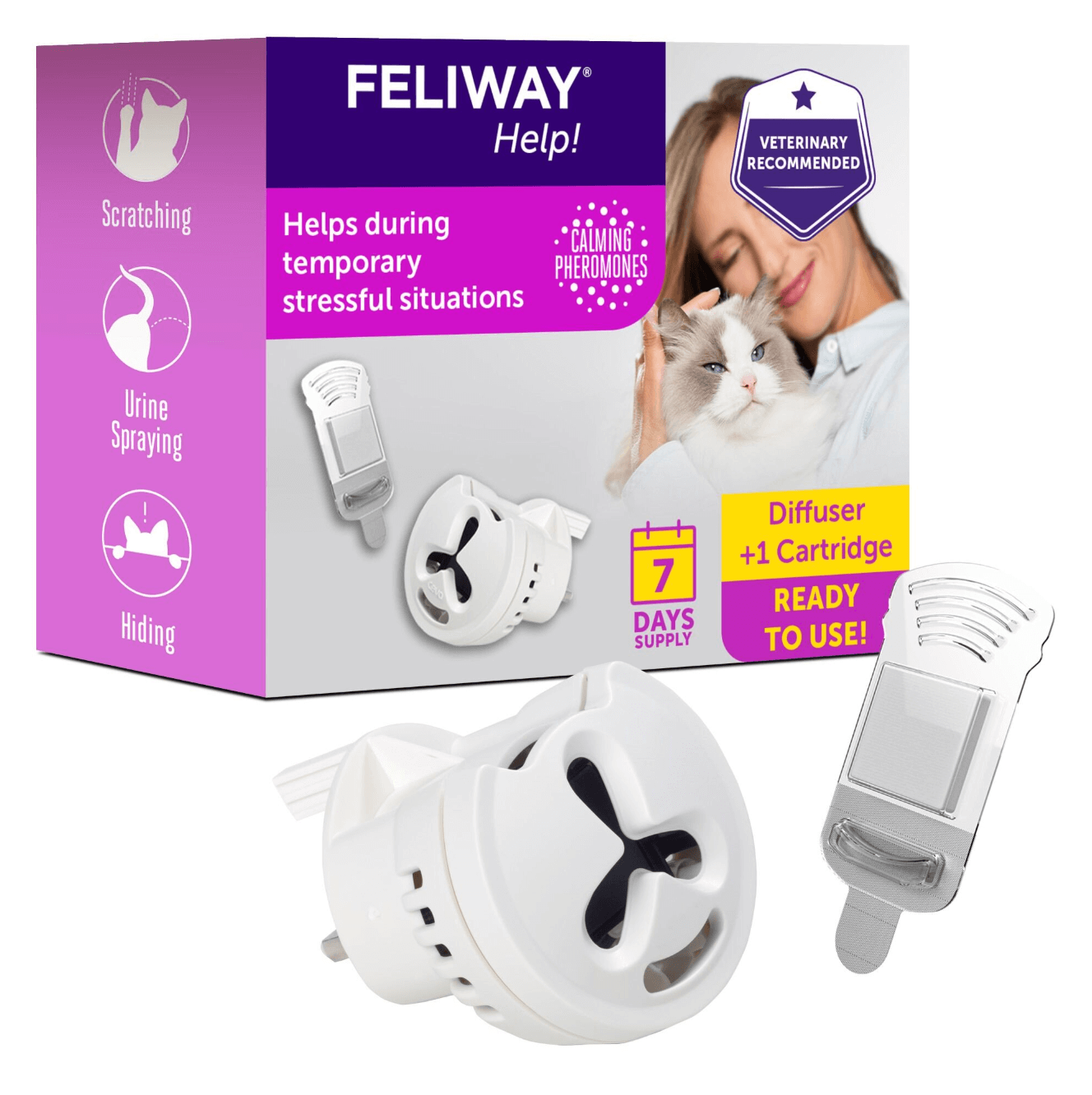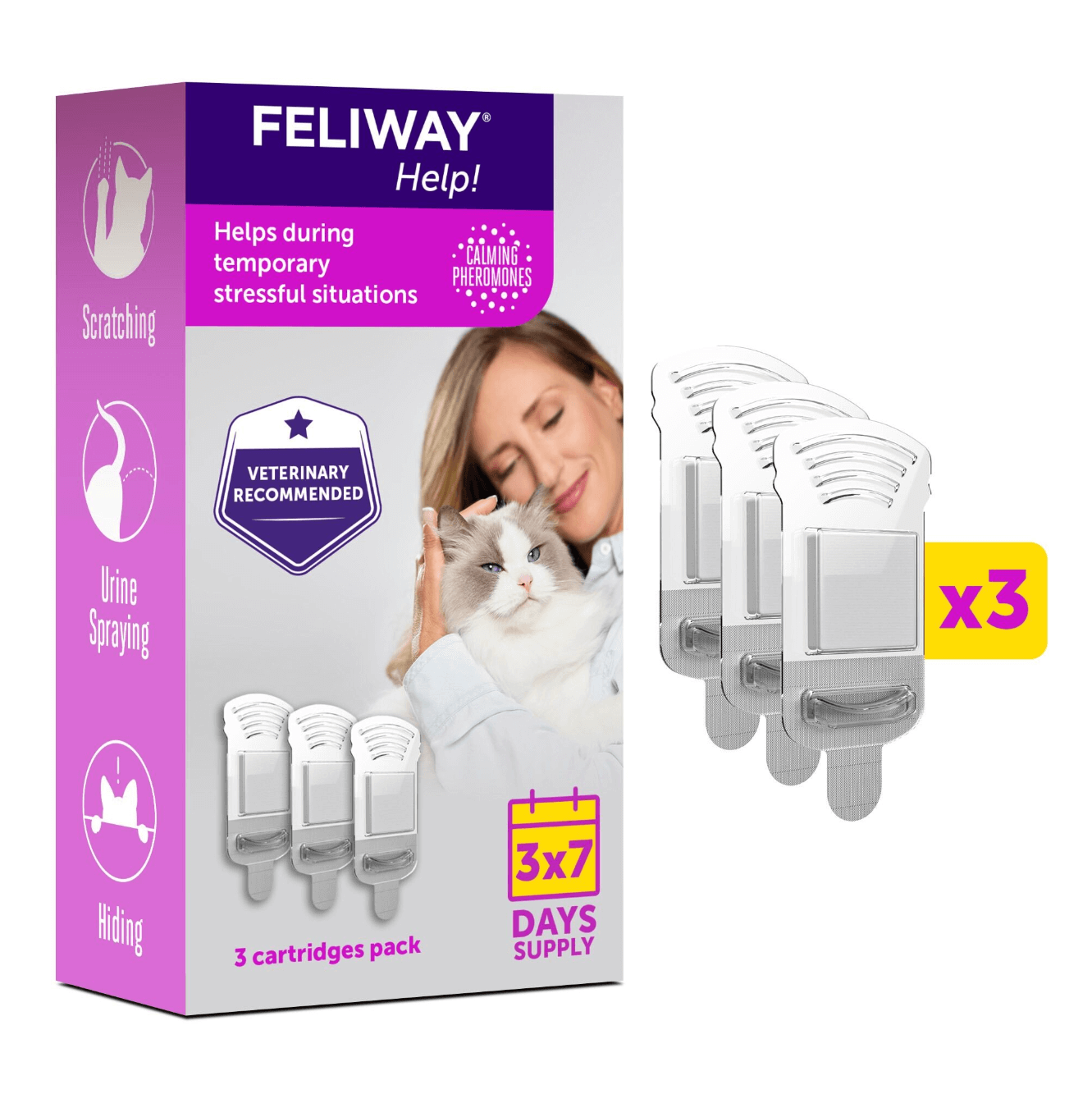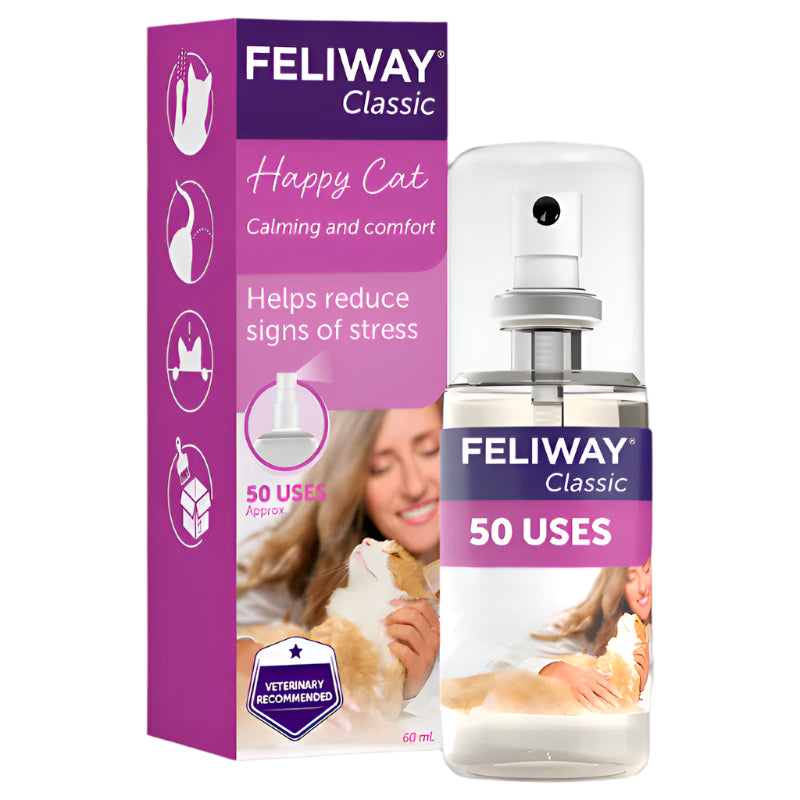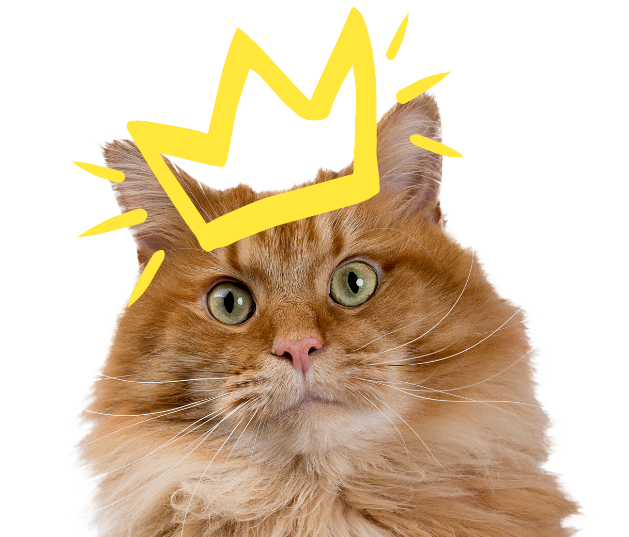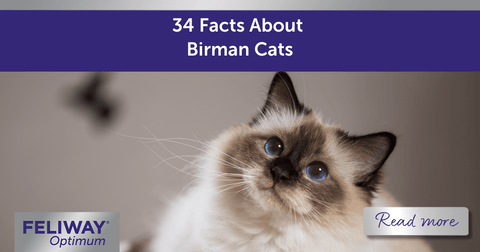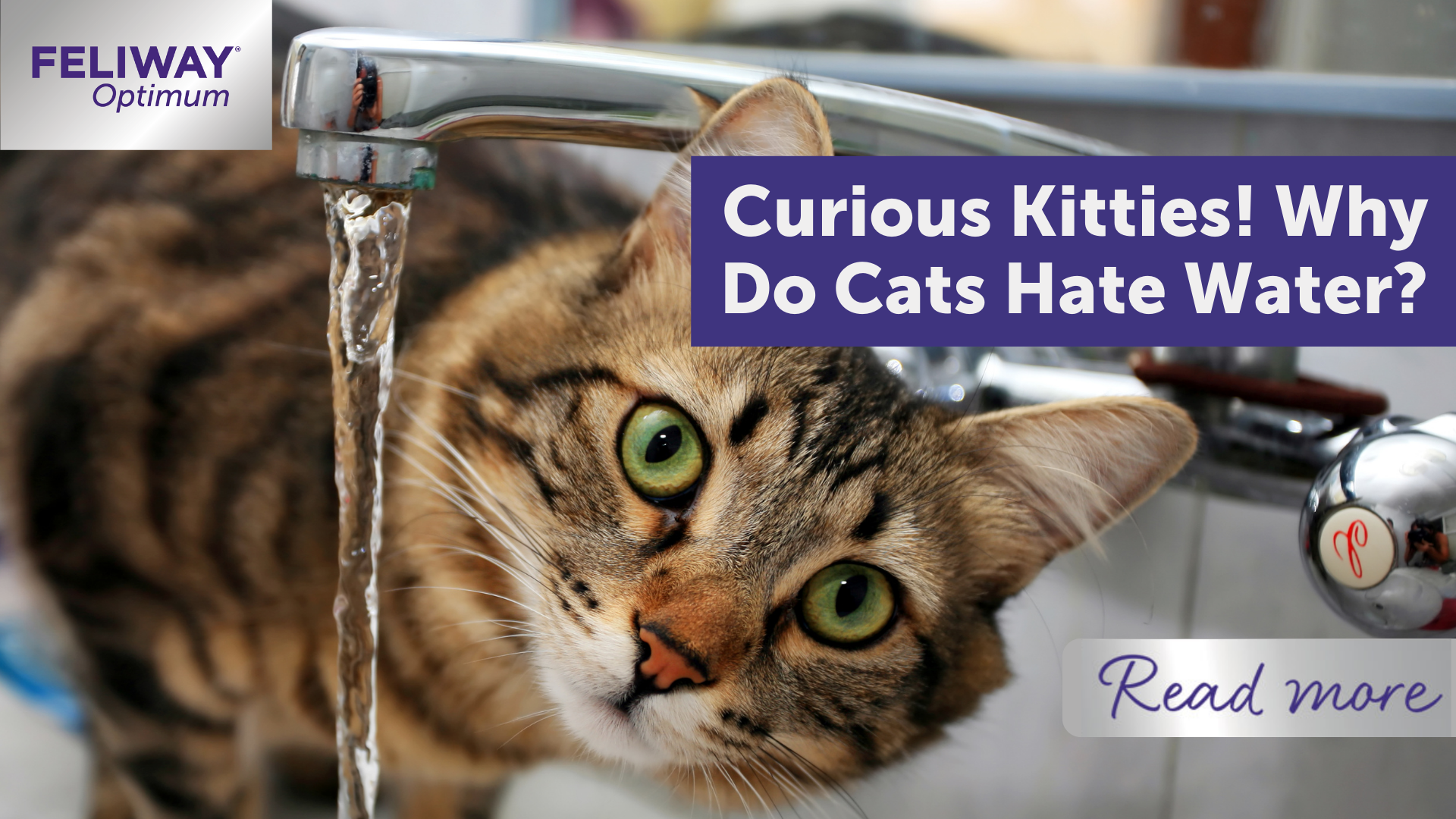
Curious Kitties! Why Do Cats Hate Water?
If your cat hates to be near any kind of water, they are not alone! An aversion to getting wet is perfectly normal kitty behaviour.
As the old Chinese proverb says: "All cats love fish but fear to wet their paws"
But why is this? Well, when we look at domestic cats' distant ancestors, they lived in large savannah areas with little in the way of expanses of water. This means that cats became used to drinking from the edge of watering holes, but rarely needed to submerge their whole body into water.
So, there's an inbuilt instinct in our domestic cats to avoid large puddles of water, unlike some other domestic pets such as dogs, who love jumping through muddy puddles and swimming in rivers when they can!
Cats are also very clean and careful animals; at every opportunity you will find them grooming themselves. As well as keeping them clean, grooming helps cats to keep their coat in purrfect shape - it's also soothing and helps to keep them cool.
Do cats really hate all water?
Drinking water
Of course, cats don't hate all water. After all, they do need to stay hydrated!
If your cat is a little choosy about how they like to drink, remember that many kitty's prefer to lap water from a running tap or moving water source, again similar to their ancestors who would seek out a source of clean, running water from the bank of a river.
Our domestic cats also have an amazing sense of smell! Unlike humans, cats can actually smell anything in the water, so you will find that they do not like water that is unclean or contains any chemicals. They don't like to have their water close to their food bowl, but prefer it to be somewhere else in the house so that they can enjoy it without smelling their food - or anything else around that may taint the water.
Cats also have very sensitive whiskers which they use as a radar to detect danger that may be around them. If their water is in a small bowl with tall sides, their whiskers will touch the edge of the bowl and their senses will be alerted. So that's why you may find your kitty jumping onto the side of the sink and helping themselves to water dripping from the tap!
To make sure your kitty has enough clean water to drink, try leaving a small container of water out (smaller than your cat's head) so all they need to do is dip their tongue in, avoiding their whiskers touching the side. Alternatively, a very wide bowl may also work.
An average cat (weighing 4-5kg) requires around 200-250ml of water a day (50ml per kg weight, per day). Be aware if you feed your cat kibble, this only contains about 10% of their daily intake of water, so your cat will be looking for other sources of water to drink what they need. Make sure they have access to fresh water at all times. Tinned cat food has a larger water content (up to 80%) so your kitty can get a good supply of their water from this - but should still have access to other water sources as well.
It's important to ensure that your cat has regular access to clean water, particularly older cats who may be prone to dehydration.
If you notice that your cat's drinking habits have changed (increased or decreased), consult your vet straight away as there may be an underlying medical problem. If your cat has stopped drinking entirely have them checked by a vet immediately as this can be very dangerous.
Bathing water
Most cats find it stressful to be bathed! And typically, they are very good at self-cleaning, with no need for a bath! Yet sometimes cats do need to be washed, such as if they have gotten a toxic substance onto their fur that they should not lick clean, or if they have a skin condition.
If you do need to bathe your cat, remember that they do not like being wet all over. You will probably find that when it's raining outside they will come indoors or find shelter to avoid getting wet. This is because their fur is not waterproof and will cling to their body when wet, and make them feel cold and uncomfortable. It will also weigh them down so that they would not be as able to escape from a predator.
If you think your cat needs help to get clean, rather than bathing them, try using a fine-toothed comb and brush to remove any stubborn marks on their fur. Your cat will then probably take over and clean themselves during their normal grooming routine.
However, you may find that older cats need further help with their grooming, particularly if they have a touch of arthritis, are overweight, or are not so agile.
Tips to to help with kitty bathing
If you do need to bathe your cat, choose a time of day when your cat is most relaxed, probably after they have been outside exploring. Avoid submerging your cat in a tub of water, but have a bowl of warm water to hand and gently wash them with a soft sponge and cat shampoo and have a soft towel handy to dry them off quickly but gently. Avoid getting their face wet and talk to them gently while washing them, reassuring them all the time. Having a treat or two available will also help!
Make sure you are in a nice warm room so that your kitty can dry off quickly, but do not be tempted to use a hairdryer on them - the noise, heat and air flow could be scary for them!
Creating a serene home environment can help your cat feel relaxed and calm whenever you next need to bathe them. The pheromone support of FELIWAY Optimum's New Feline Pheromone provides a message of enhanced serenity. Having FELIWAY Optimum plugged in in advance, before you plan to bathe your cat will not only provide a comfortable and secure environment, but help them stay serene throughout everyday modern life!
Some cats do like water!
Although in the main, most cats do not like water, some breeds of cats quite like it!
- The Turkish Van is known as the “Swimming Cat.” This is a large, elegant white cat with auburn head and tail markings, which is naturally fond of water and takes his name from Lake Van in southeastern Turkey.
- Cousin to the Turkish Van, the Turkish Angora is also an excellent swimmer.
- If you have a Bengal in your home, you will know that this breed is highly active, intelligent, and good at learning tricks and will often join you in the shower!
- Maine Coons have heavy, water-resistant coats that lend themselves to playing in water.
- A common domesticated cat breed, the Abyssinian looks like a small cougar and enjoys water.
- The Norwegian Forest Cat has a water-resistant overcoat and dense undercoat and survives even harsh conditions in cold Scandinavia.
What does your kitty prefer? Are they a water lover - or do they always stay away when they know it's wet?










